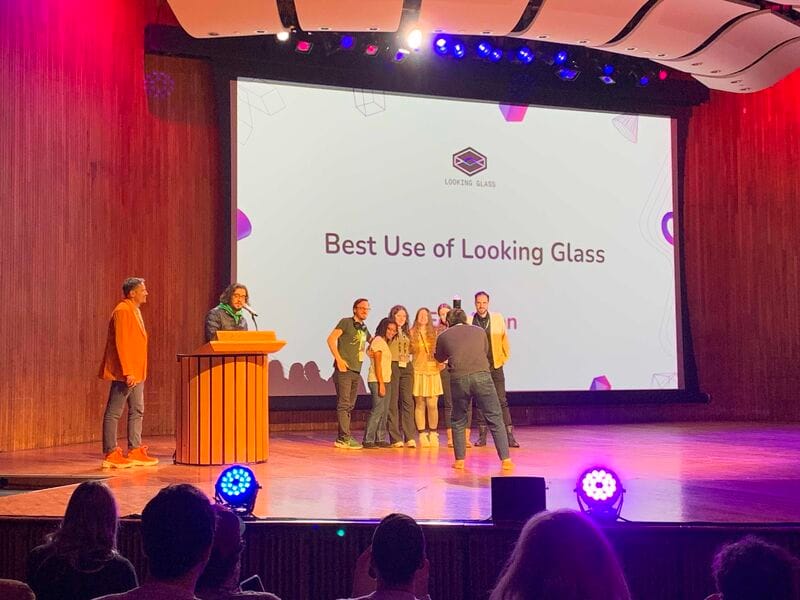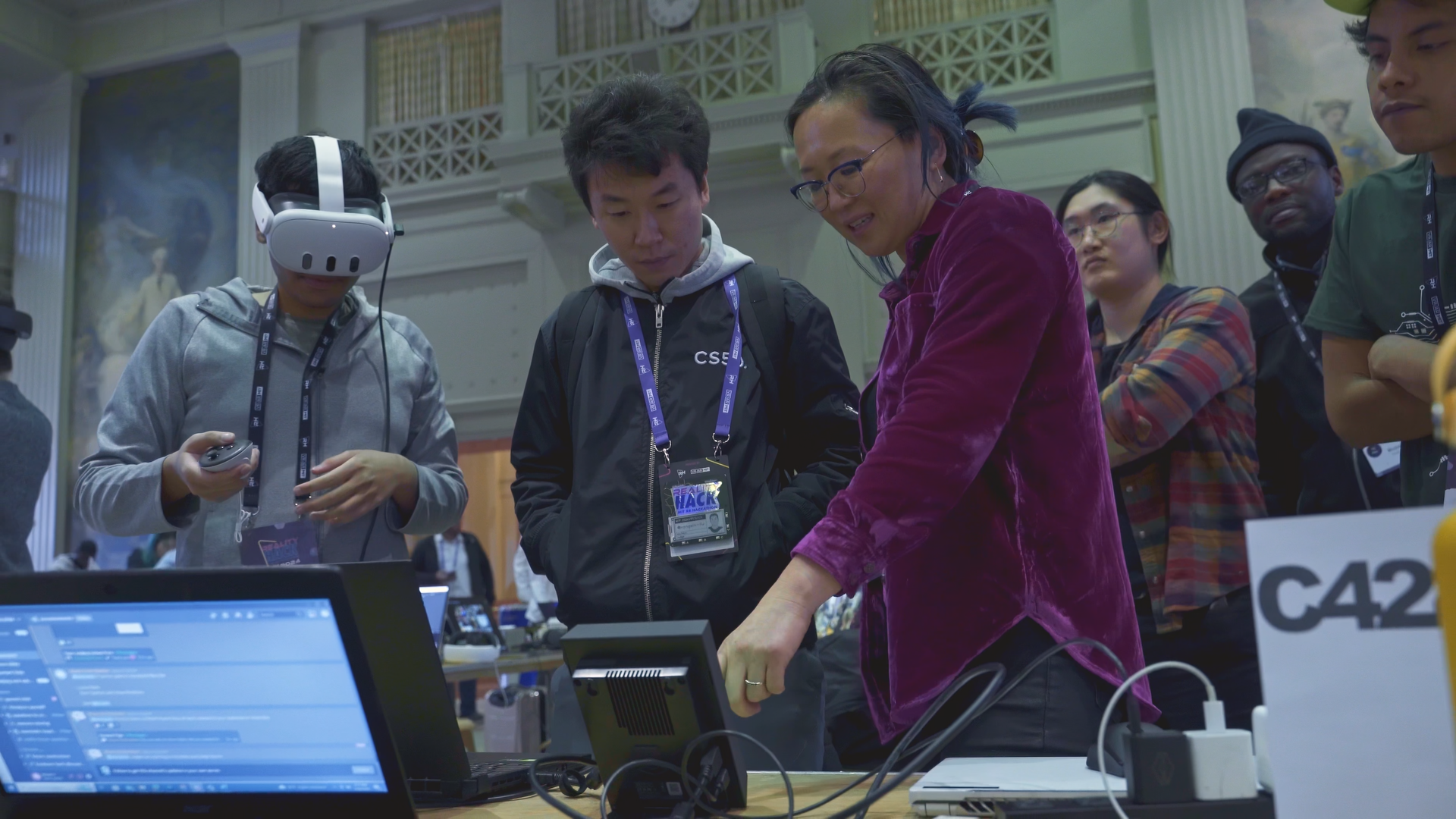And the winners are...
This January, we had the pleasure to sponsor and attend MIT Reality Hack 2024. You can recount some of our experience in this blog post!
As in the years before, our team spent a large part of the event mentoring hackers on their projects - all within the span of the hack's four days of mixing and matching different software and hardware in the year's hack theme of Connection.
While many projects stood out, this blog highlights two in particular who used Looking Glass Portrait as a means of accentuating and elevating their projects' interactive experience.
EduVision - Winner of Best Use of Looking Glass
The EduVision microscope project, developed by an innovative team comprised of undergraduate and PhD students, showcases an impressive digital exploration of red and white blood cells. Using a Looking Glass Portrait and model optimization techniques, the team successfully created a realistic and interactive Unity application where users can engage with the microscopic world.
The project features two viewing modes tailored for smartphone screens and the Looking Glass Portrait, offering versatility in the realm of educational tools. With intuitive controls, users can easily adjust their view, zooming in on the cellular details, thanks to a cleverly designed potentiometer-based input system that the team 3D printed on the spot!
The physical design of the EduVision microscope mimics the sophistication of high-end laboratory equipment (at a fraction of the cost!) using 3D printing and accessible electronic components. The integration of software, written in both C++ for hardware control and C# for the Unity-based visualization, demonstrated a seamless fusion of technologies, allowing users to interact with the cells in realtime on both a phone and a Looking Glass display. This project was a great example of how using our holographic display technologies can augment an educational experience by making otherwise financially inaccessible tooling and equipment (like an electron microscope) accessible and group-viewable.
This project not only highlights the possibilities within digital education but also showcases the power of collaboration and innovation, opening avenues for the use of XR-enabled technologies like ours as a tool for supplementing the classroom experience in an accessible manner.

You can read more about EduVision in their DevPost: https://devpost.com/software/eduvision-raosb8
Delta Real/ation
Continuing the celebration of innovation from this year's Reality Hack, we shift our focus to another exceptional project, Delta Real/ation, which offers new perspectives on community building and the experience of migration.

Delta Real/ation, a team crafted by a diverse group of XR creatives, sets a new standard for engagement by immersing players in the roles of Koda and Nisa, migrants tasked with the development of a sustainable settlement. Through its gameplay, the project highlights the importance of constructing with mindfulness towards biodiversity and community needs.
Using the Looking Glass Portrait to add another perspective to the experience's VR component, the game innovates by visualizing the collaborative decision-making process between players. This feature not only enriches the gaming experience but also prompts players to reflect on real-world applications of welcoming and integrating newcomers into their communities. The joint efforts between the player in a VR headset and the player viewing the game on a Looking Glass highlight the needs and successes of collaboration. This game was deeply aligned with the hack's theme of Connection this year.
Kudos to the Delta Real/ation team for their part in facilitating meaningful conversations through play!
You can read more about Delta Real/ation's team and project in their DevPost: https://devpost.com/software/delta-real-ation
Projects like EduVision and Delta Real/ation stand out as testaments to the potential of XR technologies in fostering a sense of empathy, connection, and active participation towards crafting a future where inclusivity and sustainability are the cornerstones of our urban landscapes.
We're excited to see what other implementations of XR, combined with Looking Glass displays, will emerge in everyday experiences, transforming our interaction with and perceptions of the world.
Already looking forward to next year's hackathon—to the future!
